Wicked enchants with dazzling visuals, catchy music, and strong performances, though its ambitious themes and runtime occasionally weigh it down.
In Wicked, director Jon M. Chu takes us back to the Land of Oz to unravel the untold story of Elphaba, the green-skinned outcast destined to become the Wicked Witch of the West. Based on the acclaimed Broadway musical and starring Cynthia Erivo as Elphaba and Ariana Grande as Glinda, this cinematic spectacle dazzles with its vibrant production and heartfelt performances. However, while its themes of individuality and resilience strike a chord, the film occasionally gets bogged down in its ambitious runtime.
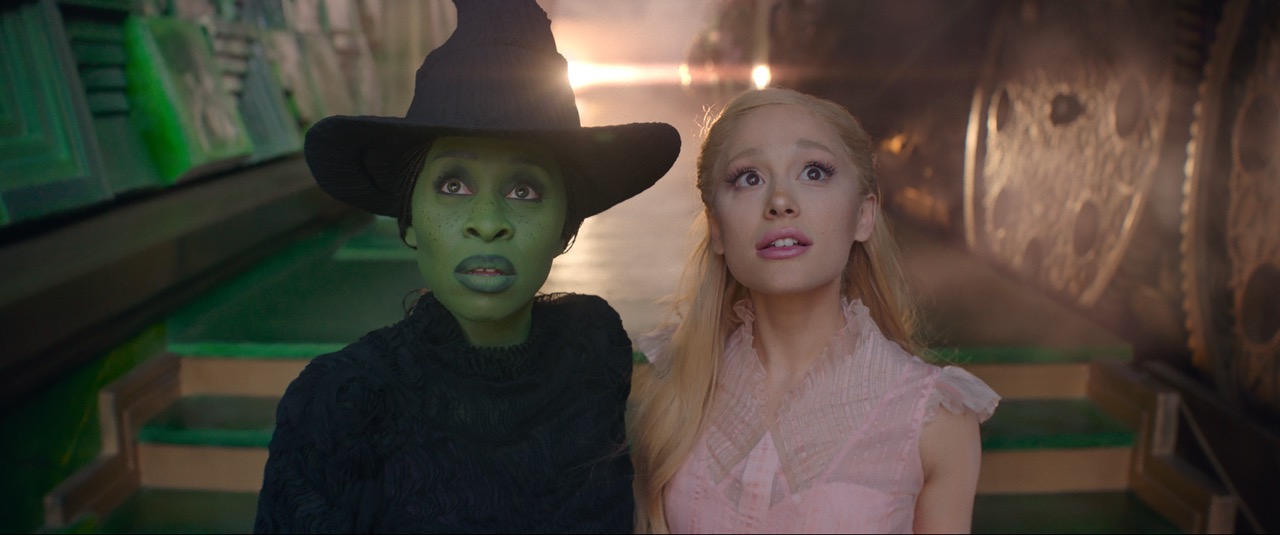
L to R: Cynthia Erivo is Elphaba and Ariana Grande is Glinda in WICKED, directed by Jon M. Chu
If nothing else, Wicked is a feast for the eyes. From the emerald gleam of the famous Emerald city to the kaleidoscopic hues of Glinda’s entourage and quirky supporting characters, the production design and special effects are nothing short of breathtaking. Chu captures the magic of Oz in a way that feels both familiar and refreshingly modern. The vibrant visuals are complemented by seamless costume designs, each piece a reflection of the characters’ evolving personalities. You’ll want to pause just to soak in the lush artistry of it all.
The music of Wicked—with iconic numbers like “Defying Gravity” and “Popular”—remains as charming as ever. Cynthia Erivo and Ariana Grande lend their vocal prowess to these beloved tunes, breathing fresh life into each melody. Erivo’s stirring performance of “I’m Not That Girl” resonates deeply, while Grande’s bubbly delivery of “Popular” injects humor and levity at just the right moments. The score is a buoyant highlight, keeping audiences engaged even when the pacing lags.
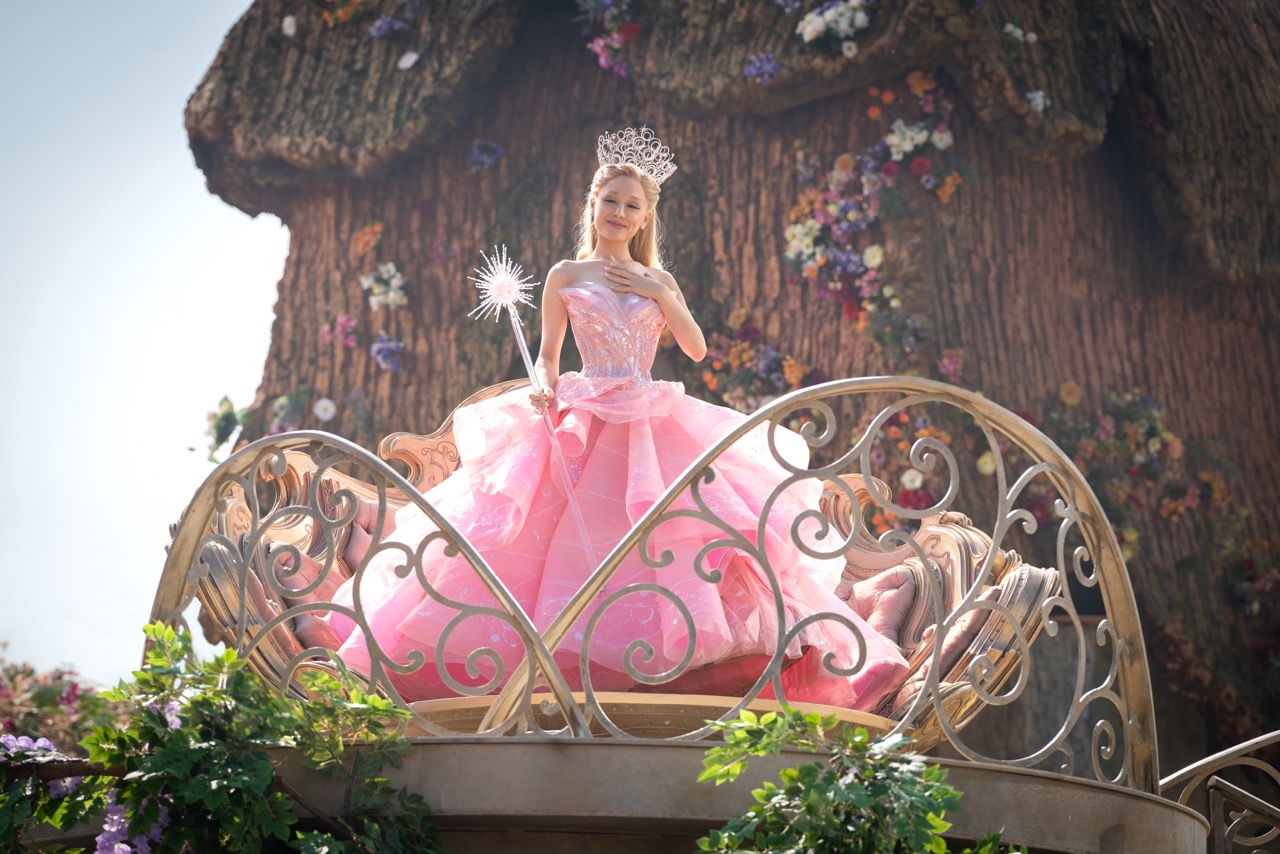
Ariana Grande is Glinda in WICKED, directed by Jon M. Chu
Erivo and Grande anchor the film with excellent performances that make their characters’ complex friendship believable. Erivo captures Elphaba’s inner turmoil with remarkable depth, making her struggles against prejudice feel relatable and raw. Grande brings charm and comedic timing to Glinda, whose bubbly exterior conceals layers of ambition and insecurity. The supporting cast, including Jonathan Bailey as the dashing Fiyero and Michelle Yeoh as the enigmatic Madame Morrible, add richness to the ensemble. The humor, for the most part, lands effectively, offering moments of levity amid the heavier themes.
At its core, Wicked is about the power of staying true to oneself in the face of adversity. The film’s exploration of Elphaba’s journey—from misunderstood pariah to self-empowered witch—is both touching and empowering. Its messaging about celebrating differences and resisting conformity resonates strongly, especially in today’s world.
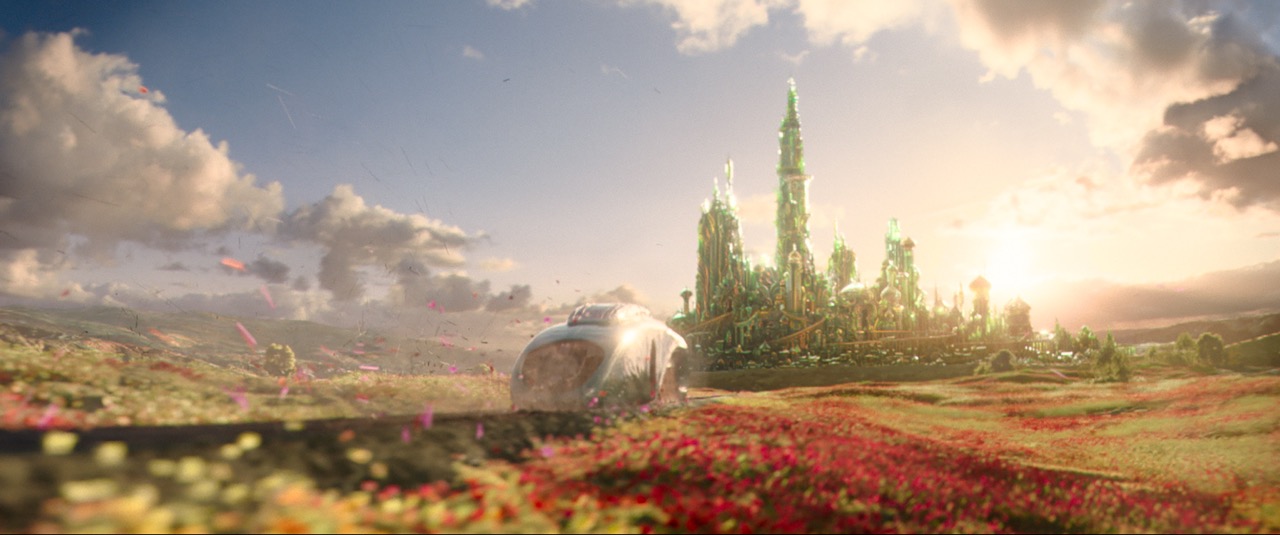
The Emerald City in WICKED, directed by Jon M. Chu
The narrative also brushes against darker, more thought-provoking ideas, such as the silencing of living creatures as a metaphor for oppression. While this subplot is intriguing, it never quite gets the screen time it deserves, leaving it feeling like an underdeveloped afterthought rather than a fully fleshed-out commentary.
For all its dazzling strengths, Wicked occasionally falters in pacing. At over two hours, the film can feel like a slog, especially in its middle act, where the story seems to lose momentum. Some sequences drag, and certain scenes—while visually stunning—could have been trimmed without sacrificing narrative depth. The result is a film that feels slightly overstuffed, which may test the patience of some viewers.
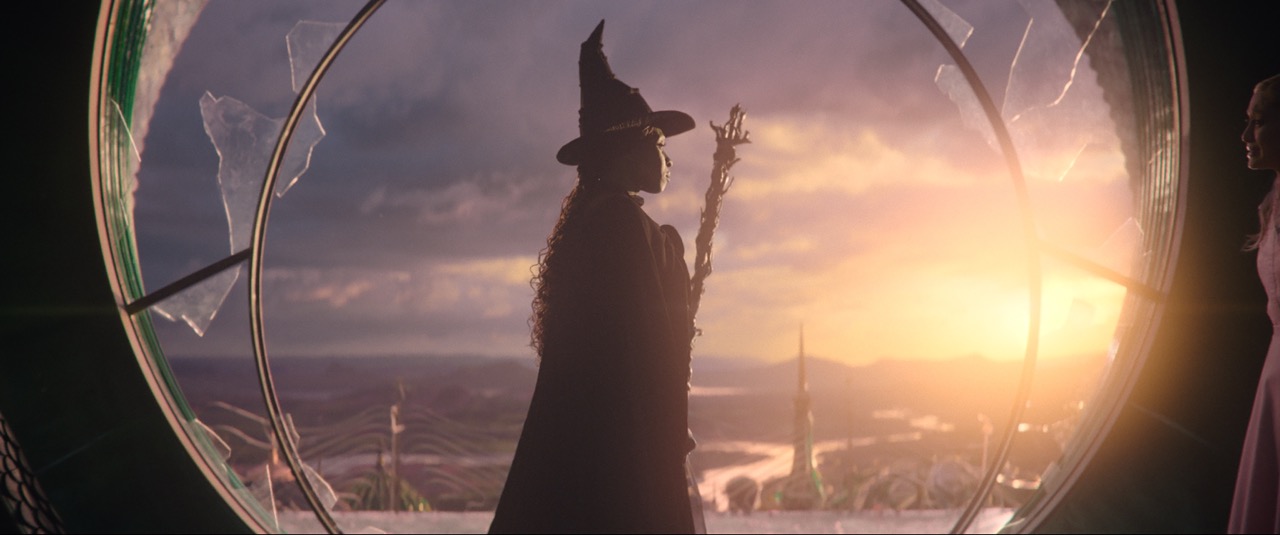
Cynthia Erivo is Elphaba in WICKED, directed by Jon M. Chu
Wicked is an ambitious, visually stunning adaptation that mostly succeeds in bringing the magic of the Broadway classic to the big screen. With catchy music, stellar performances, and powerful themes of individuality and resilience, it’s an enjoyable return to Oz. However, its bloated runtime and occasional lack of narrative focus keep it from being truly spellbinding.
Fun Fact:
The name of the Wicked Witch, Elphaba, was created by taking the phonetic pronunciation of the original “Wizard of Oz” author L. Frank Baum’s initials, L-F-B, which became Elphaba.


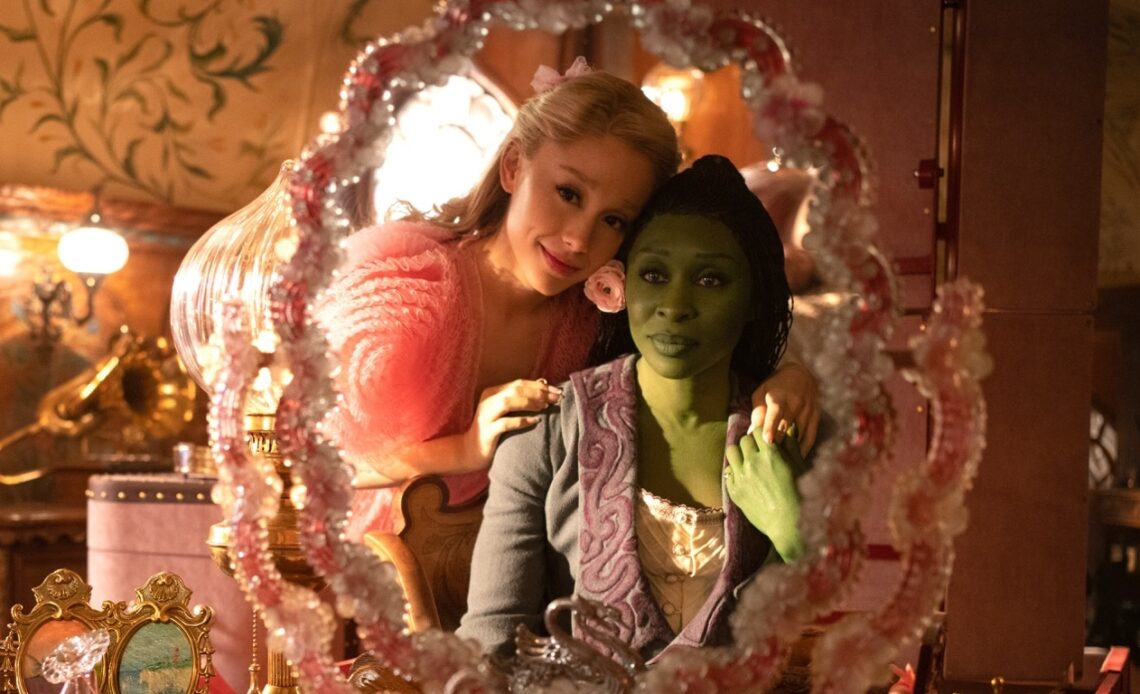

COMMENTS